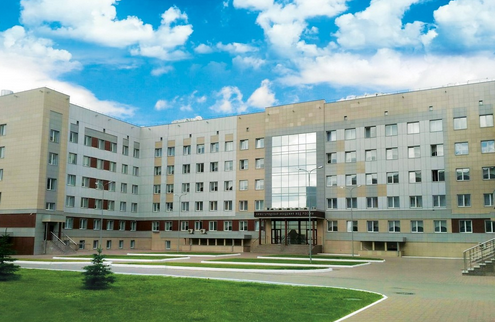- Address:
- Ankudinovskoe highway, house 3, Nizhny Novgorod, Novgorod region
- Site:
- http://www.namvd.ru/
- Date of founding:
- November 12, 1927
- Number of students / in the field of AML/CFT:
- 3 319 /
- Number of teachers / in the field of AML/CFT:
- 235 /
- Chief:
- Konstantin Germanovich Plyasov

General information
Nizhny Novgorod Academy of the Ministry of Internal Affairs of Russia
(AT the Ministry of Internal Affairs of Russia)
Date of joining the International Network Institute in the field of AML/CFT: April 19, 2024 (Protocol of Accession).
Nizhny Novgorod Academy of the Ministry of Internal Affairs of Russia has been functioning as a university since September 1972. The official name of the educational institution in 1930 sounded like "the 7th school of the senior staff of the workers' and Peasants' militia of the GURKM under the Council of People's Commissars of the RSFSR."
Since 1930, the school has been located in Nizhny Novgorod. It has repeatedly changed its name when changing administrative bodies, subordination, and training profile.
On September 1, 1947, a new form of education was introduced at the school — correspondence (By order of the Ministry of Internal Affairs of the USSR "On enrollment of the leadership and operational staff of the Ministry of Internal Affairs of the USSR, republics and the Ministry of Internal Affairs of the regions for correspondence training at the Gorky school of the commanding police"). The term of study is set for 3 years, and in 1950 125 part-time students graduated. On June 14, 1972, the acting head of the school, K. E. Igoshev, signed order No. 1, which announced the school staff, numbering 193 people in command, 1,200 full—time and 800 part-time students.
After taking office as the first head of the school, V. A. Dubrovin, the main leadership positions were occupied by: K. E. Igoshev — Deputy head of the school for academic affairs; E. I. Nikolashin — Deputy head for political affairs. N. I. Volkov became the assistant to the head of the school for the combat unit. The economic department of the school was headed by V. M. Alterman (at the same time being an assistant to the head of the school for household services), the personnel department was headed by I. N. Samartsev. The positions of heads and teaching staff of departments were mainly filled by employees of other universities. From the city universities, L. P. Pogudina was invited and appointed heads of departments: foreign and Russian languages, Associate Professor S. N. Glazkin, history of the CPSU, and Associate Professor B. I. Makarov, political economy. The Department of State and Law was staffed mainly by teachers who arrived from other services and departments.
On October 11, 2009, Archbishop George of Nizhny Novgorod and Arzamas celebrated the Divine Liturgy and consecrated the belfry and bells built on the territory of the Academy in the church in honor of George the Victorious at the Nizhny Novgorod Academy of the Ministry of Internal Affairs of Russia. According to the established tradition, the Divine Liturgy is celebrated before taking the oath by the cadets of the first year.
The Academy has full-time and part-time education. The training is conducted at 24 departments, where more than 100 academic disciplines are taught.
The Academy has 2 faculties for full-time students of higher education programs:
- Faculty of training the operational staff of economic security and anti-Corruption units;
- Faculty of training specialists in the investigation of economic crimes.
There are also faculties of distance learning, vocational training, retraining and advanced training, and adjunct courses.
Teaching and research work is carried out by more than 30 doctors of sciences and 132 candidates of sciences, 16 professors and 57 associate professors.

